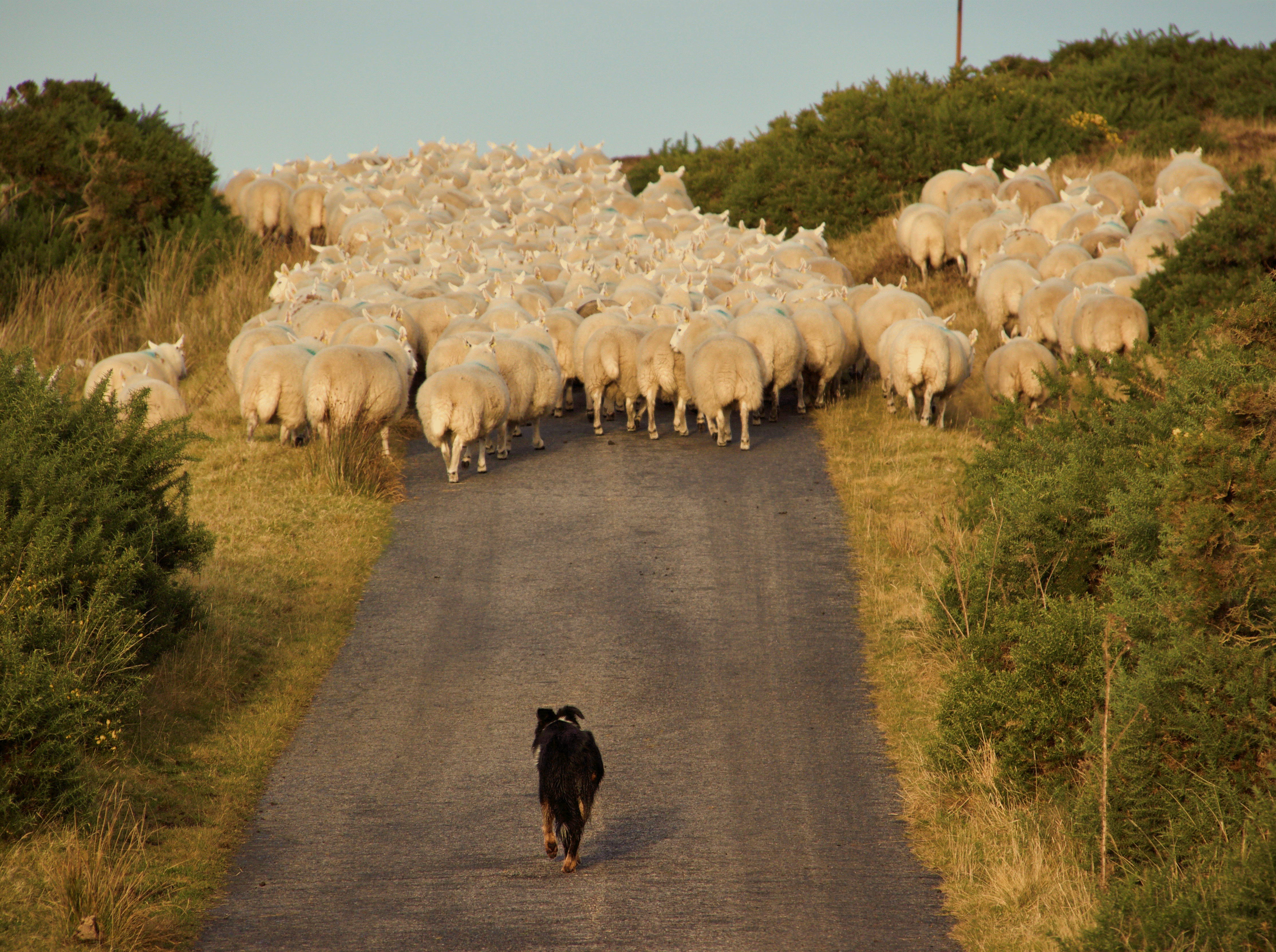Our tupping is well under way with the tups being out to the ewes for more than a week.
The gimmers are tupped slightly later to try to spread the workload at lambing, and so far the weather has been excellent with good frosty winter days.
At this time of year much of my day is spent waiting for daylight to come in and, when it does, rushing to try to get everything done before the darkness beats me.
I must confess to some time-wasting with my camera while out checking
cattle and sheep.
The light has been great with the low winter sun and clear blue skies.
The younger dogs have been gaining good experience, turning ewes into the tups each day to make sure the homebred shearlings are covering them all, out in the large hill parks.
It’s great watching a young dog using his instincts. Still lots of ‘take your time’ and ‘lie down’ commands but better that than being faced with a shrinking violet that will not handle the pressure of hard work.
With only the calves and a few fat lambs yet to be sold, I have had time to reflect on how the farming year has panned out. The weakness of the pound post-
referendum has certainly helped our sheep trade.
As farmers we still need to do so much more to encourage consumption of home-produced sheep meat and not to rely on the weakness of the currency for better returns.I was recently asked what challenges faced the sheep industry in the future.Where to start?
First to come to my mind was the increasing age of farmers. The current average age of Scottish farmers has been estimated as in the late fifties. For once in my life it’s good to be below average.
The challenges faced in the future to enable succession and new blood into our industry will not always be easy but it’s definitely worth investing our time and effort. When I was at school going into agriculture was looked upon as being something of a failure that required little intelligence.
Looking back I suspect my careers advisor had no idea what a career in agriculture meant. On reflection I should have offered him an insight into what it was like to work in a fulfilling job that you looked forward to each day.
To be very blunt, our career talks were seldom inspiring.
One massive disappointment for me this year is that was there were no pupils from our local school choosing to undertake the rural skills programme.
As with so many other schools in the country numbers fluctuate, as does the uptake of the course.
The rural skills course which Farr School runs is a shinning example of a straightforward idea delivering positive results. It has allowed pupils from various backgrounds the opportunity to experience different land-based industries.
Groups would go out to farms, estates and forestry operations and gain hands-on experience. Former pupils have gone on to train as gamekeepers, shepherds and shepherdesses and crucially gain employment and continue to live and work within the local community.










